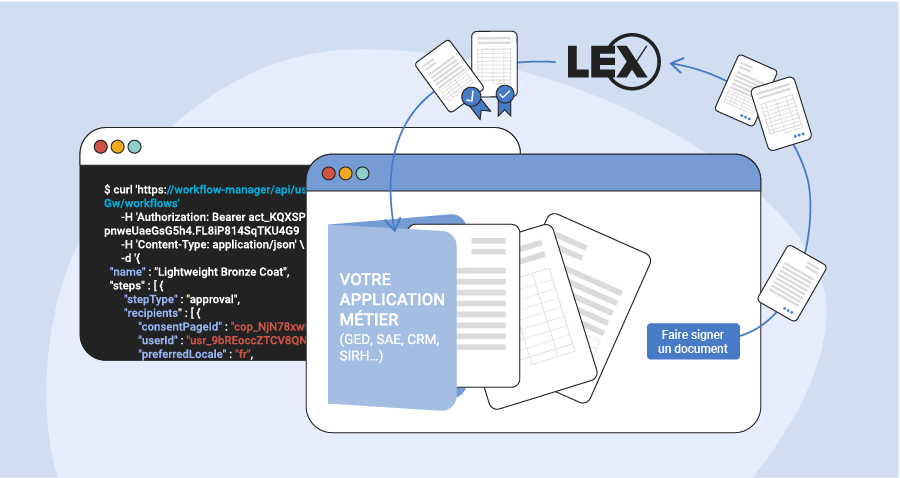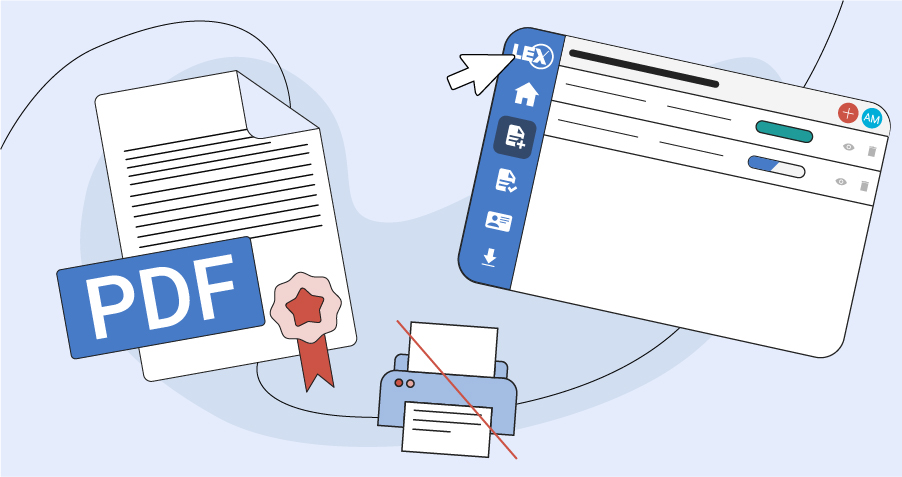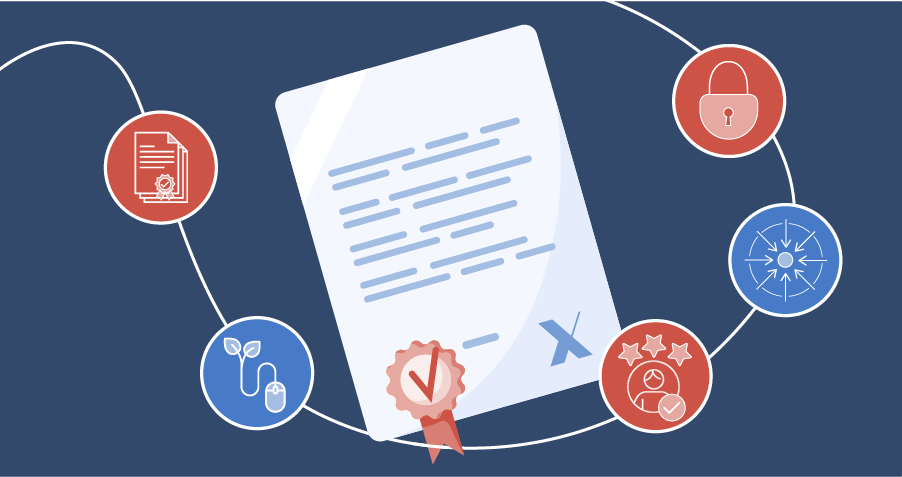Share on :
The digital signature is a solution that modernizes processes in private and public organizations. More and more of them are using electronic signatures to validate dematerialized documents and collect consents. Lex Persona has been present on the market since 2005, and has established itself as a major player in the sector.
Integrating digital signatures into business processes: the preparatory phase
The implementation of electronic signatures must be conceived as a genuine IT project.
The search for an efficient, secure solution for signing your documents
The traditional handwritten signature is still widely used in both the private and public sectors. The task seems straightforward when only one signature is required and the signatory is physically present in the organization. However, when a signature is required from several signatories, the situation becomes more complicated. The same applies to the growing use of teleworking.
This slows down the decision-making chain, causing delays that can be detrimental to the organization. In this context, the solution of affixing a handwritten signature to a printed and then scanned document is a widespread practice. It is, however, sub-optimal: it has little legal value, and involves the use of consumables (paper, ink).
The question of data security also arises. Information, sometimes confidential, can be erroneous, corrupted, lost or consulted by unauthorized persons. It is also difficult to identify the stage at which a document has been signed.
In the face of these difficulties, the electronic signature offers a number of advantages:
- It speeds up the decision-making process. The parties involved can sign simultaneously, even if they are geographically distant. They can also be sent reminders, and the signature and validation stages can be tracked on a dashboard.
- The electronic signature is a secure solution requiring numerous certifications. For example, the Lex Persona solution is ISO 27001 certified. We are required to implement a security policy and guarantee an information security management system (ISMS). Our solution is also certified by ANSSI, which requires a rigorous cybersecurity policy.
- Electronic signatures cut costs and boost productivity. It's a step in the direction of digital sobriety. For example, it considerably reduces the need to send e-mails with attachments, print out numerous supporting documents, use scanners and so on.
Companies that have implemented electronic signatures have a competitive advantage over their rivals. It speeds up the decision-making chain and improves the user experience.
Which digital signature solution for which documents?
Lex Persona has proven expertise in electronic signatures. In this respect, we cover the three levels of signature provided for by the European eIDAS regulation.
Before implementing the solution, it is important to map out the documents to be signed and the most appropriate level. and the most appropriate level :
The simple digital signature
With a simple electronic signature, there is no need to check theidentity of the signatory. It is ideal for signing low-risk documents. These include employment contracts, quotations and sales proposals, delivery notes, etc.
Advanced digital signature
This type of electronic signature uniquely identifies the signatory, and is highly secure. This category is the most widely used in practice. It is used, for example, to sign purchase orders, health insurance subscriptions, SEPA mandates, property sales agreements, etc.
Qualified digital signatures
The qualified electronic signature requires a qualified electronic signaturecertificate. And a qualified signature creation device. According to the French Civil Code, this signature has the same legal force as a handwritten signature. It is reserved for the most sensitive documents, such as public procurement contracts, electronic invoices, life insurance contracts, private deeds, etc.
Implementing digital signatures in business processes
Electronic signatures are a fast-growing trend, in response to demand from customers who are increasingly intolerant of the constraints associated with handwritten signatures.
Technical and functional prerequisites
Electronic signatures are part of an increasingly dematerialized environment ("paperless" objective). It complements EDM, ERP, HRIS and other systems. It is also used in the dematerialization process for public procurement.
To implement electronic signatures, you need a dedicated tool offered by a trusted third party. Our Lex Enterprise solution is certified and guarantees compliance with the most stringent regulatory and security constraints.
In addition, to take full advantage of the benefits of electronic signaturesto their full potential, they need to be automatically integrated into the various applications used. Lex Persona guarantees this interoperability through connectors and a highly secure API. a highly secure API and its ISO 27001 certification and CSPN issued by ANSSI are important guarantees of security and continuity).
What's more, setting up a signature is not something you can improvise. Our solution is simple and ergonomic to use.
However, its impact on work processes must be taken into account, and effective change management must be ensured. We support you in this reform by providing you with webinars,help center, blog and white papers. We are also at your service to find the right solutions for your organization.
Examples of business flows affected by digital signatures
The development of teleworking and the search for efficient dematerialized solutions have boosted the use of electronic signatures. It is perfectly suited to the main uses in many many professions. It is becoming increasingly widespread in many sectors, including banking, insurance,real estate and regulated professions.
The types of documents involved are equally varied:
- Customer and supplier contracts ;
- Quotation ;
- HR documents ;
- Promises to sell ;
- Leases ;
- Responding to calls for tender...
In terms of public procurement, dematerialization was generalized on October 1, 2018 for contracts worth more than €40,000 excluding VAT. The procedures for electronic signatures have been standardized by the decree of March 22, 2019.
Reliable and secure, digital signatures streamline exchanges with suppliers, customers and employees. At Lex Persona, we offer a no-holds-barred electronic signature, suitable for all professions and all uses.







